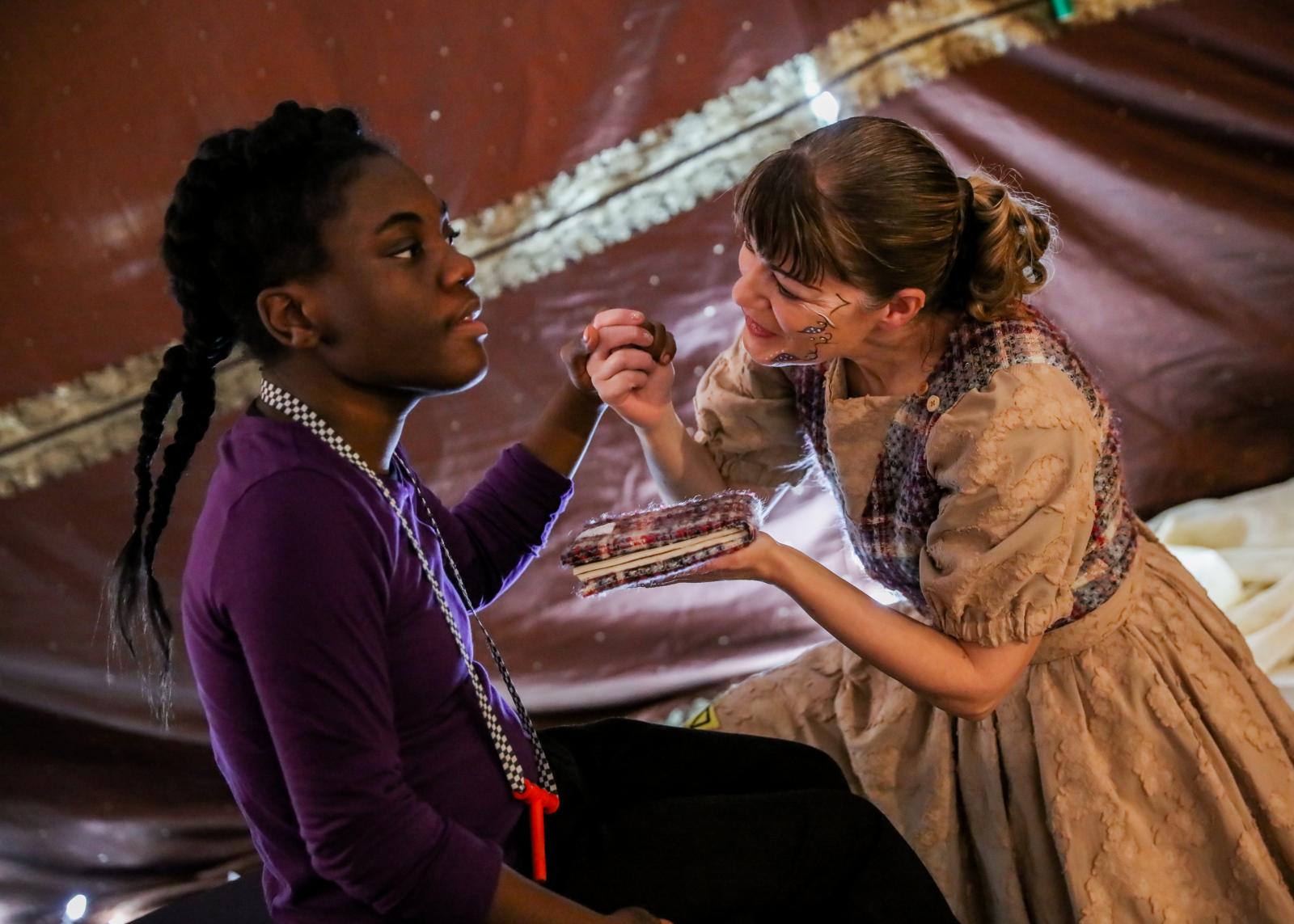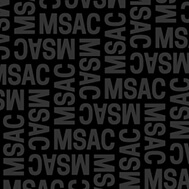MEAC is an Arts serving organization that provides innovative and creative theater programming to both day and residential schools and adult care centers. MEAC provides interactive performances which: empower, inspire and educate children, adolescents and adults with severe multiple disabilities in a safe nurturing environment. The goal of which is to develop communication and self-expression skills. The performances provide individuals with disabilities an opportunity to fully participate and become engaged in theater at a high standard of excellence. Theater should be accessible to all Americans, MEAC has created a method to make this goal a reality.
About this Organization
Between 1986 to 1994, MEAC toured worldwide as an Arts Ambassador on behalf of the British Council. Its ground-breaking performances were acclaimed as the first Art form that could truly allow the severely disabled child an opportunity to become part of the theater community. In 1994 the troupe re-located to the United States of America. Beginning in 1994 MEAC conducted a school residency at The Maryland School for the Blind, which continued for 21 years. MEAC has also conducted a residency at the Regional Institute for Children and Adolescents (Severe Emotional Disturbances) since 1996, and The Delrey School (multiple disabilities) since 2000. In 2003, MEAC’s methods were viewed by representatives of Johns Hopkins Geriatric Nursing Dept. at the Copper Ridge Center. Following this performance, the troupe began programming for adults in the last stages of Alzheimer’s at Copper Ridge and remained performing there until February 2016. It currently conducts elder care programming at the Broadmead nursing home. In 2014 MEAC began an annual National Tour program. Its first visit involved two schools in Southern California, the Wings Learning Center and the Avalon School. In May, 2015 MEAC began a school residency at the Texas School for the Blind & Visually Impaired. In 2016 MEAC established two new residencies at The Chimes School, a Baltimore City school for students with low functioning autism, and The William S Baer School, a Baltimore City public school for medically fragile children. MEAC has been awarded the Cherry Adler Most Outstanding Children’s Theater Award three times.Services/Opportunities
Project Title: Community of Theater – theater to inspire, educate and heal
Project Activities
MEAC will use its thirty-five years of research, creating and implementing performances of intense emotional exploration to help educate, heal and enhance the lives of children and adolescents with severe multiple disabilities, and adults in the last stages of Alzheimer’s. The organization will present performances in special education and nursing home facilities, with a special emphasis on bringing the benefits of Theater to many of Maryland’s most medically fragile, multiple disabled and autistic children and adolescents. Through its unique combination of mime, movement, music and other theatrical techniques, the troupe will reach out to individuals with disabilities and engage them in a series of original and interactive one-hour performances. Unlike traditional theater groups that perform for an audience, the MEAC audience’ becomes the subject of each play, helping to shape the workshop’s gradual unfolding. Thus, as the play progresses its participants often discover themselves taking on roles, where they become the caretaker to their able-bodied partners. The programs goals are to provide the highest quality form of theater to youth & adults whose severity of disability has historically made it difficult for them to actively participate in the Arts. Each residency will be provided with a diverse range of historical and cultural Plays, including many inspired by American, and World cultural heritage.
Intended audience/ Participants/ community
Performances will engage children as young as three through to elders in the 80’s and 90’s. Children born with cognitive delays, deaf-blindness, autism, cerebral palsy, medically fragile and visual and hearing impairments will become part of the theater community, along with adults diagnosed with memory impairment and dementia.
MEAC’s Theater method was created with the aim of helping those who find communication, mobility and security in their everyday lives extremely difficult. People without such disabilities have the capacity to express emotions through the use of language and/or their bodies. For someone with a severe disability this can prove to be a major obstacle. MEAC believes that these individuals have the same needs for self-expression, if not greater due to their daily struggles. Often, however, their emotional requirements are suppressed. MEAC's method is designed to tap into such suppressed emotions and provide an outlet for them to be vented. This is done through a theatrical structure with the role of the workshop leader taken by performers who control the activities from within an overall framework that encompasses a story-line. The emphasis of each performance lies in exploring the different emotions experienced by the main characters at varies stages of the story, which, in the past, have included feelings of persecution and freedom. The role of the students is neither one of a passive observer nor one of performer; but they are actively engaged in the experience during all aspects of the play.
The outcomes are life enhancing. Participants of a MEAC residency over time will display increased skills in daily self-expression and communication skills. Self-injury, and negative behavior problems will be reduced greatly, if not completely. Gross motor skills will see improvement. Interactions between participant and family, peers, and the greater community will be enhanced. The 'humanity' of the participant will be recognized, and celebrated.
The theatrical structure of each performance uses a foundation of the Expressionistic Mime Method: To use the physical body to express emotions, without the use of the spoken word. This form of mime creates a perfect foundation for other theatrical methods such as dance, music and storytelling. Joanne Margolius has been a teacher and practitioner of Expressionistic Mime since her meeting with the American Mime, Adam Darius in the summer of 1985.
Creative Expression and Production
1. The participants will use a variety of theatrical elements to communicate their feelings and ideas.
2.The students/adults will reflect and develop the performer's movements to explore characters and develop situations to dramatic problems. Emphasize is put on conflict resolution within the plays.
3. The participants will be encouraged to 'lead' the performers and develop the stories through their own emotional responses and imagination.
4.The participants will be able to touch and see a variety of textural costumes, cloth backdrops, props, and dramatic theater make-up.
5. The students/adults will observe varies ways in which people can communicate without verbalization.
6. The students will use a variety of loco-motor and non-loco-motor movements to express their responses to the play. Children in wheelchairs can be placed on floor mats and supported physically by aides.
Featured Work
Photos

Featured Work: Photos
The Secret Annex
Written Works
-
The Fisherman at The Chimes School
See more information about The Fisherman at The Chimes SchoolMedium: PlayYear: 2018
Booking
Booking Price: < $500
Contact Joanne Margolius, Director and Lead Performer at experiences@verizon.net or at 443 848 4615 / 433 544 7542
Schools and nursing homes can book MEAC, initially with an introduction program, consisting of 5 to 8 shows.
A small fee of $50 per show will be charged to facility, remaining funds will be provided by Foundation and local government grants.
If facility believes MEAC will be beneficial to it's students/ residents, a long term residency can be organized.
A room where there is no foot traffic. A room where furniture can be moved to the sides. Special Education schools should provide floor mats for students who can be taken out of wheelchairs or mobile children who can sit on floor. Bean bags/ wedges are also good for supporting participants. A ladder for rigging up fabric backdrops. MEAC will provide all other equipment.
MEAC's mission to to provide services to students who historically have not had the opportunity to participate in the performing arts. Joanne Margolius will travel to Baltimore City and County for morning, afternoon and evening shows. Other counties will be considered for Monday afternoons.
Regional Institute for Children & Adolescents - Rehabilitation Department - Megan Smith
The Chimes School - Katie Brynes - Lead Teacher
William S. Baer School - Jed Gingher - Assistant principal
Broadmead Nursing home - Lifestyles Director Stacey Young
Texas School for the Blind - Miles Fain - Principal
Arts in Education
Population Types: Grades Pre-K – 2, Grades 3-5, Middle School (6-8 grade), High School (9-12 grade), Educators
MEAC conducts long term residencies on Tuesdays, Wednesdays, Thursdays and Fridays. For introduction programming, MEAC is available for booking on Mondays and a number of Thursdays. Reach out to Joanne Margolius and she will find a time to present a number of shows at your facility. If a long term residency is required, MEAC will select a time and day when either a monthly or weekly performance can take place.
